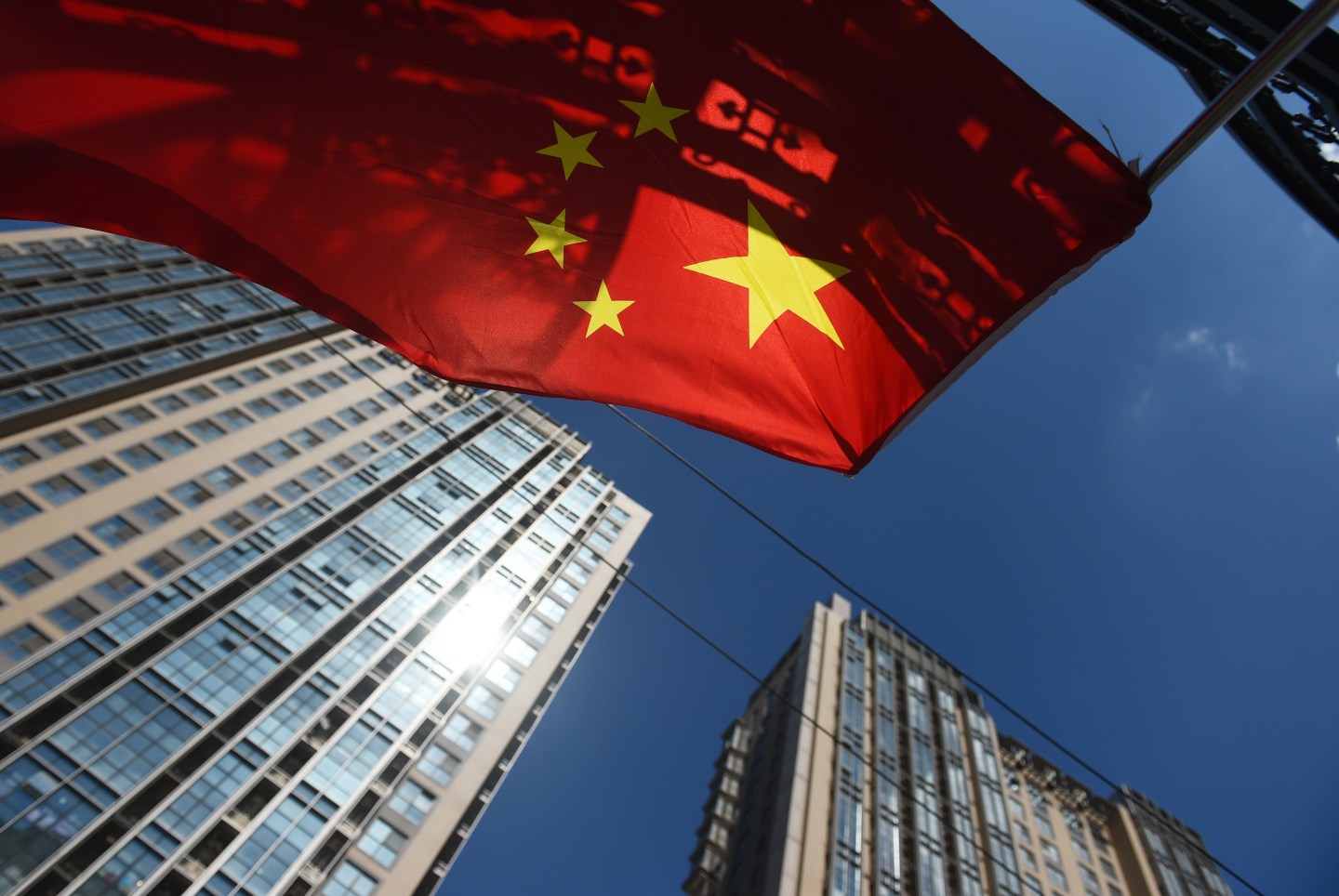China‘s factory output and retail sales grew faster than expected in August as a strong housing market and a government infrastructure spending spree underpinned growth in the world’s second-largest economy.
Industrial output grew the fastest in five months as demand for products from coal to cars rebounded, though analysts warned the outlook is clouded by weakness in manufacturing investment and a lack of spending by private firms.
“It is very clear that the data is improving because of the property market. This is not sustainable,” Commerzbank economist Zhou Hao said.
“It is a good time for China to deliver on structural reform, especially on the SOE side, to restore confidence in the economy,” he said, referring to a long-promised overhaul of the country’s often bloated and inefficient state-owned enterprises.
Improvements in August, while modest, suggest China‘s third-quarter growth is holding up better than expected just a few months ago and likely remains within the government’s 2016 target range of 6.5-7%, despite the alarming drop in private investment which has left the economy more dependant on government spending.
Industrial output rose 6.3% in August from a year earlier, data showed on Tuesday. Analysts had expected it to pick up only slightly to 6.1% as many plants were closed around Hangzhou to guarantee blue skies for a G20 summit of world leaders earlier this month.
China‘s steel industry, in particular, has perked up as capacity cuts and production curbs boost prices and profits, while the infrastructure spree and housing boom have spurred demand for building materials from iron beams to cement.
China‘s crude steel output rose 3% in August from a year ago, the sixth straight monthly rise. Its biggest listed steelmaker, Baoshan Iron & Steel (Baosteel) said on Tuesday it has raised its prices for October, its eighth price hike so far this year.
Retail sales also handily beat expectations, with growth accelerating to 10.6% from 10.2% the previous month. Analysts had forecast an increase of 10.3%.
Car sales have been strong in China this year, hitting a 3-1/2 year high in August as buyers rushed to get new wheels before a tax cut expires at year-end.
Trade data last week showed imports rose for the first time in nearly two years, while export declines eased.
See also: The 2017 Coins2Day Global Forum Will Be Held in Guangzhou, China
STRONG GOVERNMENT SPENDING HIGHLIGHTS IMBALANCES
Fixed asset investment was unchanged at 8.1% over the first eight months of the year, marginally better than expected.
Still, the rate of growth in investment remained the slowest since December 1999, and details showed a growing imbalance between public and private spending that raised questions about China‘s longer-term growth prospects.
Beijing-based broker China International Capital Corporation said in a note that while the headline investment figures were solid, data on new project starts, a leading indicator for future activity, softened in August.
Highlighting Beijing’s increasing reliance on government spending to drive the economy, investment by state firms surged 21.4% in the first eight months of the year. China‘s fiscal spending rose 12.7%.
Property also remained a bright spot, despite fears that a near one-year-long housing boom may be peaking as more cities impose curbs on home purchases to rein in sharp price rises.
Property investment rose 6.2% in August on-year, according to Reuters calculations, compared with 1.4% in July, while sales by floor space grew 25.5%.
“Property sales continue to expand at a rapid pace. We are skeptical how long this can last given that fundamental factors point to housing demand growth in the low single digits,” Capital Economics economist Julian Evans-Pritchard wrote in a note.
The strength in the property market compared with only 2.8% growth in fixed asset investment in the manufacturing sector for the year through August.
See also: Chinese Policymakers Square Off As Economic Challenges Grow
COOLING PRIVATE INVESTMENT A WORRY
Private investment grew just 2.1% in the first eight months of the year, the same pace as in January-July and remaining at record lows.
While private firms boosted spending 2.3% on a monthly basis, reversing a two-month slide, the issue remains a key concern among policymakers, who have pledged to improve operating conditions for the more efficient private sector.
But government support may only go so far in sectors with weak demand that do not benefit from strong property and commodities markets.
“Business is tough. The economy overall is bad and many industries are facing overcapacity issues, which filters through and impacts all industries. Consumers’ spending power is falling and competition is intense,” says Vivi Wan, general manager at apparel manufacturer Hangzhou Meisai Clothing Co., Ltd.
Wan says her company’s margins have been compressed from 20-30% to around 10% over the last few years, and that many firms in the area have shut down.
Analysts say China may face a renewed slowdown as the impact of previous policy support fades and as the government and central bank hold off on further easing over concerns of rising debt and housing bubbles.
“We think that momentum behind the economy will fade in 2017, when the property market will be on a downward cycle and the automotive sector is likely to be facing overcapacity issues,” Tom Rafferty, Asia Economist at the Economist Intelligence Unit, said in a note.






